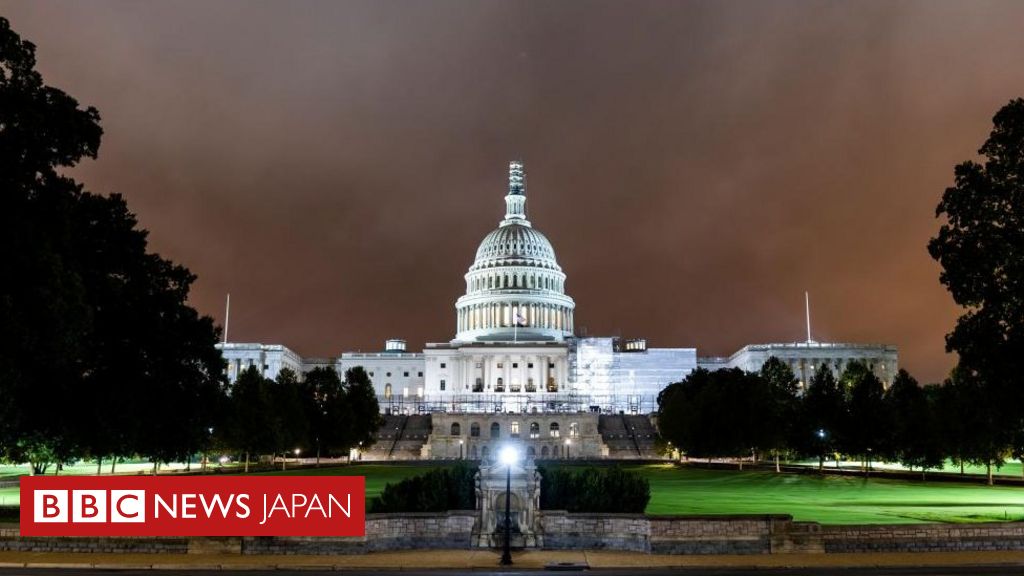5 hours ago
Robin Levinson King, Anthony Zurker, BBC News
Image provided by EPA-EPE/Rex/Shutterstock
The United States has experienced 10 government shutdowns over the past 40-plus years. But in other countries, governments continue to function even in times of war or constitutional crisis. Why does the uniquely American phenomenon of government shutdown occur?
For most countries in the world, government shutdowns that result from revolutions, invasions, or disasters are very bad news. In contrast, it is surprising to many that the leaders of one of the most powerful countries on earth have deliberately provoked a crisis that shuts down public services and reduces economic growth.
Why do these situations keep happening?
Interpretation of the budget law triggered this
In the US federal government, separate political parties can control individual branches of government. This is a structure built by America’s founding politicians to encourage compromise and deliberation in politics, but recently it has had the opposite effect.
It all began in 1980, when Jimmy Carter was president, when then-Attorney General Benjamin Civiletti added a narrower interpretation to the 1884 Anti-Deficiency Clause.
This 19th-century budget law prohibits the government from entering into contracts without Congressional approval. For nearly 100 years after its enactment, the government was able to continue making necessary spending even when spending exceeded the budget. However, since 1980, the government has adopted a stricter policy of not being able to spend money without a budget.
This interpretation sets the United States apart from other presidential democracies. In Brazil, for example, a strong government has enough power to continue functioning even during a budget crisis.
America’s first government shutdown occurred in 1981. It occurred when President Ronald Reagan vetoed a budget proposal and lasted several days. Since then, there have been at least 10 government shutdowns, ranging in duration from half a day to more than a month. The most recent government shutdown was from December 21, 2018 to January 25, 2019 under President Donald Trump’s administration, and was the longest ever.
During a government shutdown, not only will critical public services such as social security and the military cease, but hundreds of thousands of government employees will not be paid. At the time, the Trump White House estimated that each week of suspension of paychecks would reduce gross domestic product growth by 0.1 percentage point.
Why doesn’t this happen in other countries?
In other countries around the world, this type of government shutdown is virtually impossible.
Most European democracies have parliamentary systems in which the executive and legislative branches are controlled by the same political party or coalition.
In theory, parliament could reject the budget proposal submitted by the prime minister, but such a move would likely lead to an election. Public services such as national park operations, tax refunds, and food assistance programs would not be shut down.
This is exactly what happened in Canada in 2011. This happened when the opposition party rejected a budget proposal submitted by then Prime Minister Stephen Harper’s Conservative Party (minority ruling party). The House of Representatives then passed a motion of no confidence, leading to a snap election. In the meantime, however, government functions continued steadily as usual.
Even in Belgium, where there was no government for 589 days in 2010-2011, public transportation continued to work.
A recent example is Ireland, which successfully maintained a minority government from 2016 to 2020 on a confidence-and-supply system (a system in which the opposition agrees to support budget proposals and votes of confidence). did.
But such collaborations are rather unusual in the United States, and are becoming increasingly rare these days.
American political parties also seem to have no qualms about using the day-to-day functions of government as a trump card to extract concessions from rival parties. The current government shutdown crisis was also the result of a minority of conservative and hard-line members of the opposition Republican Party demanding drastic spending cuts that would not be supported by the centrist wing of the party or the ruling Democratic Party.
The deadline for the 45-day bridging budget is fast approaching. What kind of new agreement will be reached in the meantime, and is such an agreement even possible? That’s a completely unknown quantity.
#ExplanationWhy #government #shutdowns #happen #BBC #News
2023-10-02 12:10:01


